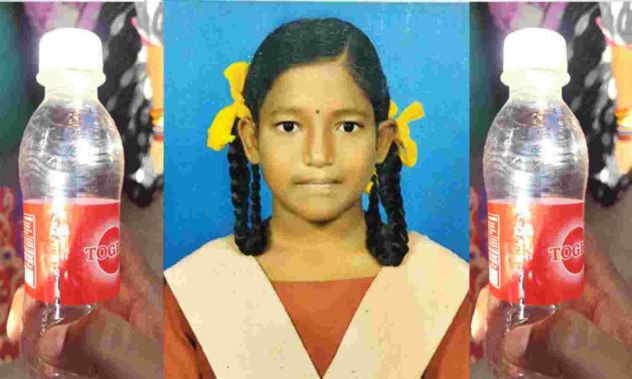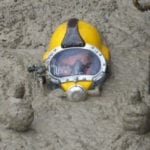However, after reading these ten stories of tragic and scary accounts involving soda, you may never think of your favorite fizzy drink quite the same way.
10 Mountain Dew
While the Mountain Dew we know today comes in 35 different flavors and is synonymous with “gamer fuel,” it was created for a much different purpose. Brothers Barney and Alley Hartman began bottling their lemon-lime creation in Knoxville, Tennessee, in 1932. Its name was originally a slang term for mountain-made moonshine, and it was created to be a whiskey chaser. In order to make moonshine, a fermentation process is needed, which creates alcohol in two forms: ethanol and methanol. Ethanol is the drinkable version, but methanol is toxic. The human body converts methanol into formaldehyde. The formaldehyde is then converted into formic acid, which essentially poisons the body’s cells. Racing fuel contains almost 100% methanol, creating the same inebriated feeling that ethanol gives through alcohol consumption. While methanol is extremely poisonous, it is cheap and easy to access in the form of racing fuel, which makes it luring to underage drinkers. Four teenage boys at a party in January of 2016 created a deadly concoction called “Dewshine,” a mix of Mountain Dew and racing fuel. The teens created the mixture on purpose and drank it. Authorities were called to the home of sixteen-year-old Logan Stephenson on January 21, 2016, after he was found dead in his bed. Just a few minutes later, they were called to the home of his best friend, J.D. Byram, because he had begun having seizures. Byram died the following Monday.[1]
9 Grape Soda
Something about the term “forbidden” or “off-limits” seems to promote an insatiable desire to explore, especially as children. Whether it’s a particular room in the house, an area in the neighborhood, or simply an adult’s favorite treat, we’ve all been guilty at one point or another of letting our curiosity get the better of us. However, for five-year-old Alexa Linboom, stealing her stepmother’s grape soda would cost her her life. On January 1, 2012, Alexa stole “one or two grape drinks” from her stepmother Mary Vaughn and was forced to drink more than two liters of grape soda and water within a two-hour time frame as her punishment. The excessive amounts of fluid she ingested caused her sodium levels to drop and her brain to swell. Alexa began screaming in pain, and she later fell unconscious, but her father and stepmother waited several more hours before taking her to the hospital. She was declared brain dead and removed from life support just two short days later. Her death was declared a homicide due to acute fluid/water intoxication. Both her father, Randall Vaughn, and her stepmother were sentenced to life in prison without parole.[2]
8 7-Up
The Dominican Republic is a country on the island of Hispaniola in the Caribbean and has become a popular tourist destination due to its beautiful beaches, endless recreational options, and rich culture. Surrounded by the Caribbean Sea on the south and the Atlantic Ocean on the north, it seems like the perfect place for a family vacation, romantic getaway, or beachfront wedding. Watch this video on YouTube Awilda Montes had planned a romantic getaway to the Dominican Republic with her boyfriend in October of 2018. However, their stay at the Luxury Bahia Principe Bouganville Resort quickly became anything but romantic. Montes had only been at the resort for a few hours when she decided to grab a bottle of 7-Up from the mini bar. Upon opening the bottle, she noticed there was no “fizz” but carefully proceeded to take a sip. She immediately tasted bleach which caused her entire mouth and tongue to burn, and she began spitting up blood. While the resort claimed the incident was an “accidental mix-up” and tried to make things right with apology dinners, free nights, and couples massages, those “apologies” came with a price. The resort staff asked Montes to sign a disclaimer, which she refused. More disturbing is the fact that the three other Americans have also died at the same resort. A 41-year-old woman, Miranda Schaup-Werner, also died after drinking a beverage from the mini bar, and an engaged couple from Maryland were found dead in their room.[3]
7 Diet Soda
Diet sodas have become popular options for those with diabetes or those looking to decrease their sugar intake as they are sweetened with things such as aspartame or sucralose instead of sugar. However, while the FDA has approved aspartame for human consumption, people who suffer from phenylketonuria (a rare genetic condition where the body cannot break down phenylalanine) need to avoid aspartame as it is highly toxic to their system. Allergic reactions to aspartame can cause a range of symptoms such as swelling of the lips, tongue, or throat, itching, swelling of the salivary glands, or skin eruptions. Watch this video on YouTube Elizabeth Perkins suffers from phenylketonuria and spent three days in a coma after being served a diet soda at a local pub instead of the regular version of soda she specifically asked for. After the very first sip, she knew something was wrong. Suddenly the room went dark, and when she regained consciousness, she was in the hospital, and three days had passed. For most people, being served a diet soda versus a regular soda is a mere inconvenience. However, for someone like Perkins, this mistake could be the difference between life and death.[4]
6 Pepsi
Sibling rivalry is all too familiar in households with more than one child, be it blood-related siblings, step-siblings, or even adopted children. Insults, teasing, bickering, and even stealing toys are common ways for siblings to compete with one another or for mom or dad’s attention. For most siblings, the rivalry will lessen as they grow older, and they may even become best friends. But for some, the competition will continue for the rest of their lives. Two brothers in New Jersey were watching an NFC Championship game together when one of the brothers, Michael Charles, became angry that the San Fransico 49ers were losing and grabbed the last can of Pepsi. When Michael’s unnamed brother asked him not to take the soda, Michael began shouting expletives, picked up a pipe, and hit his brother in the head. Michael and his brother continued the argument by stabbing each other with knives, leaving the scene completely covered in blood by the time officers arrived. Michael fled the scene, and the police were unable to locate him. Not only was this a violent, gruesome display of sibling rivalry taken too far, but sadly, their mother was present during the time the argument took place.[5]
5 Coca-Cola
Soda consumption contributes to more than 180,000 preventable deaths each year. While we know that consuming soda or sugary drinks on a regular basis is not good for our health, there is something unmistakably satisfying about a cold sip of our favorite soft drink, especially on a hot day. However, for a 22-year-old man in Bejing, China, choosing to drink a refreshing bottle of Coca-Cola instead of water on a hot day was a deadly mistake. An unnamed man in China drank a 1.5-liter bottle of Coca-Cola within 10 minutes on a hot day to try and cool off. Shortly after that, he began experiencing bloating and extreme abdominal pain due to trapped gas caused by the soda’s carbonation. He was treated in the emergency room, where a CT scan revealed that he did indeed have a build-up of gas. However, the gas was not only in his intestines but had also been pushed into his portal vein. The portal vein is responsible for carrying blood from your gastrointestinal tract to your liver. Gas in your portal vein restricts blood flow to the liver, cuts off the much-needed oxygen supply sent to the liver in order for it to function properly, and in turn, causes the liver tissue to die. While the doctors tried to release the gas from his system and administer fluids and treatments to protect his dying liver, they were unsuccessful. He died from hepatic ischemia, also known as “shock liver,” due to a lack of oxygen.[6]
4 Ginger Ale
An improvised explosive device or IED is one type of explosive weapon that can take almost any form and be activated in several different ways. The high-pressure blast from these types of explosions can cause damage to pressure-sensitive organs such as the lungs, ears, and abdomen, thermal burns to the skin and lungs, and direct body damage from shrapnel or debris sent into the air from the blast. Shelly Millsap suffered an axonal brain injury similar to that of a soldier after being hit by an IED. However, her life-altering injury was not sustained in combat but in her own kitchen. On the morning of January 17, 2013, Millsap walked into her kitchen and past the kitchen sink when she heard a loud boom that knocked her to the ground. She had forgotten about the bottle of homemade ginger ale she had taken out of the refrigerator and left in the kitchen sink. The yeast and sugar fermenting inside essentially turned the bottle into a bomb that happened to explode just as she walked by. Even though her face was bleeding and she was screaming in pain, she managed to send a picture of her injury to her husband, Bob, to alert him of what had happened and then drove herself to the Victor Clinic for treatment. The medical staff at the clinic was able to identify the severity of her injuries, and a nurse transported her to another medical clinic, where she was diagnosed with a broken nose. The next day, Millsap returned to work at the Wildwood Room, where she was a baker. However, when she returned to the Victor Clinic for a follow-up appointment six days later, the nurse practitioner who evaluated her became more concerned about the injury to her nose. As a precaution, she was ordered to go home, rest, and avoid working. Nearly a week after her accident, the effects of the explosion came to light. Millsap’s memory began to fail, her right side became paralyzed, and she could hardly speak. She was taken in for an MRI, but the results showed nothing out of the ordinary. A neurologist who consulted her case diagnosed her with a traumatic brain injury. The Millsaps also received a second opinion which diagnosed her condition as an axonal brain injury that impaired her speech, short-term memory, and motor skills. One forgotten bottle of ginger ale completely changed Shelly Millsap’s life forever, and her journey will never be the same.[7]
3 Sprite
The Sprite soft drink we have come to love was actually first developed in West Germany in 1959. It was part of the Fanta line of soft drinks and went by the name Clear Lemon Fanta. It wasn’t until two years later that it was introduced to the United States market. Today, Sprite is available in over 190 countries worldwide and comes in seventeen different versions. Its lemon-lime flavor has been marketed as a refreshing beverage option; however, drinking from a Sprite bottle cost one woman her life. Sarah Jane Moss had been staying at her boyfriend Daniel Fairbrother’s house in January 2011 when she took a drink from a Sprite bottle that was stored on a kitchen shelf. Her face began to swell, and she began vomiting a foul-smelling black substance. Fairbrother’s mother took Moss to the hospital, and the medics were told that she had consumed fish tank fluid. They then instructed her to go home and increase her fluid intake. Two days later, Moss’s symptoms began to worsen, and she was taken back to the hospital. She developed sores around her mouth and a red rash; she was vomiting blood and had difficulty speaking. When the doctors tested the Sprite bottle Moss drank from, they discovered incredibly high levels of alkaline. Moss had actually consumed cannabis fertilizer. Her condition continued to deteriorate over the course of the next six months, and her esophagus became as thin as a piece of string. She died on June 24, 2011, after several emergency surgeries, leaving behind her 4-year-old daughter.[8]
2 Togito Cola
Asthma is a condition where a person’s airways react to specific triggers, leading to inflammation and swelling of the airways, making it difficult to breathe. Without treatment, an asthma attack can lead to asphyxiation. This was the cause of death for a 1young girl who simply wanted nothing more than to enjoy a soft drink. On August 3, 2021, a 13-year-old girl in Chennai, India, purchased two bottles of Togito Cola ( a local soft drink available in certain parts of India) from a shop near her home. The girl had been diagnosed as asthmatic and was instructed not to consume anything cold. Therefore, when her older sister Ashwini witnessed her consuming the soft drink, she scolded her, but it was too late. The girl hurriedly gulped down the remaining soda before it could be taken away from her. She immediately started coughing and vomiting. Ashwini rushed to the church where their mother worked to tell her what had happened, but before they could make it back home, the girl collapsed. She was transported to the hospital but was declared dead on arrival. The shop that sold the soda was shut down for a short time after the girl’s grandmother and neighbors stated the shopkeeper was known for selling expired products. And the food safety department temporarily closed the beverage company’s manufacturing plant.[9]
1 7-Up (Again)
Methamphetamines are highly addictive stimulants that affect the body’s nervous system by increasing the amount of dopamine naturally produced in the brain. It is commonly referred to by street names such as meth, speed, crank, or ice and has become the second most popular illegal drug in the world. José María Soto Gastélum died from what was deemed a methamphetamine overdose in 2017; however, he had never used the substance. On September 17, 2017, Gastélum purchased a 7-Up from a convenience store in Valle de Mexicali and later began experiencing symptoms. He was treated at the ISSSTECALI clinic, along with three others, for similar symptoms of nausea, vomiting, limb pains, labored breathing, and headaches. Toxicology reports indicated that Gastélum tested positive for methamphetamines in “high concentrations,” although he was not a substance user. It was later discovered that 7-Up bottles sold in the Mexicali area had been laced with methamphetamines and put onto store shelves for sale. While none of the 7-Up products sold within the United States had been affected, over 77,000 containers were confiscated from a Mexican Pepsi Co bottling plant.[10]
























